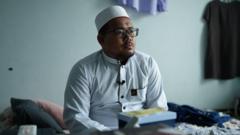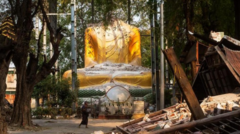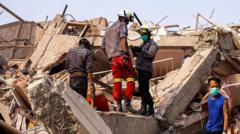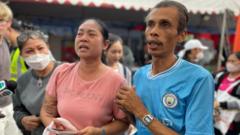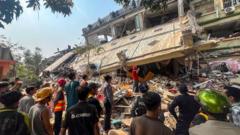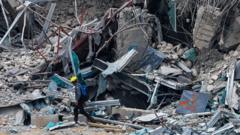The recent catastrophic earthquake in Myanmar has not only claimed at least 2,000 lives but has also left many expatriates feeling hopeless and guilty about their inability to help from afar. People like Ko Naing, who fled Myanmar due to political turmoil, grapple with survivor's guilt as they desperately try to stay connected to their loved ones and provide aid despite the challenges of being in a foreign land. While the physical distance offers a semblance of safety, it compounds the emotional burden as they witness the repercussions of tragedy unfolding back home.
Myanmar Earthquake: The Emotional Toll on the Diaspora
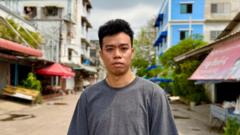
Myanmar Earthquake: The Emotional Toll on the Diaspora
Survivor's guilt and helplessness grip Myanmar expatriates as a devastating quake strikes their homeland.
Ko Naing, who currently resides in Thailand, reflects on the last moments spent with his great-uncle, a victim of the quake that devastated parts of Sagaing. Emphasizing feelings of helplessness, he mentions the additional weight of knowing his compatriots need support during this catastrophic time. As the diaspora mobilizes to provide humanitarian aid from abroad, they find solace and purpose in their shared determination to contribute to the recovery efforts despite the emotional strain of being away from home.
As communications trickle in from Myanmar, many within the diaspora witness the destruction of historical landmarks and the loss of their communities through social media. In this collective suffering, they remain united, striving to aid their homeland through fundraising and support networks.
Ko Naing epitomizes the resilience of the Myanmar people, using his experiences to advocate for relief efforts while confronting his own mental struggles. His story sheds light on the ongoing emotional and social challenges faced by the Myanmar diaspora and their unwavering spirit in the face of adversity.
As communications trickle in from Myanmar, many within the diaspora witness the destruction of historical landmarks and the loss of their communities through social media. In this collective suffering, they remain united, striving to aid their homeland through fundraising and support networks.
Ko Naing epitomizes the resilience of the Myanmar people, using his experiences to advocate for relief efforts while confronting his own mental struggles. His story sheds light on the ongoing emotional and social challenges faced by the Myanmar diaspora and their unwavering spirit in the face of adversity.


